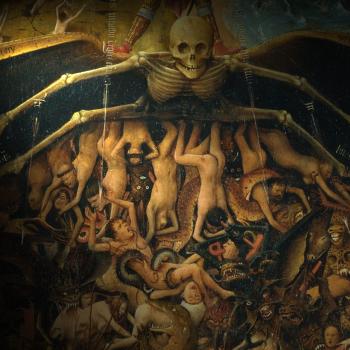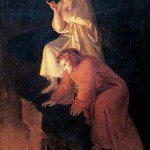To understand the whirlpool of events that swept Harvey toward excommunication we must trace in more detail Tucker's key role in creating the trial of faith in France. In Salt Lake City, while en route to France, Tucker had obtained an interview with Apostle Joseph Fielding Smith, known as a doctrinal authority. Tucker had not been satisfied with the interview. However, Elder Smith apparently had not found him unworthy to continue on his mission, nor had Tucker declined to continue on his way.
Tucker arrived in the French Mission in October 1956 and was assigned to work in Geneva, Switzerland. Many French missionaries were stationed in Belgium or French-speaking Switzerland, awaiting visas permitting them to enter France itself. Elder Tucker was initiated into missionary work with a practical joke. Left alone at the missionary quarters, he was visited by Marilyn Lamborn, one of the sister missionaries, posing as a streetwalker. She tried several times to solicit his business. He refused at every point and, when the other missionaries returned, innocently shared his relief with them at his escape from temptation. Everyone hooted at the outrageous prank and this obviously high-principled elder's discomfiture. Tucker's thinking may have been deviant, but he was not unscrupulous.
Tucker remained in Geneva four months. In February 1957, he was transferred to Marseille on the southern coast of France with David Shore as a companion. In Shore he found a kindred spirit. These two like-minded elders intensively prayed, fasted, studied, and in other ways actively sought spiritual growth. Their devotion and energy was unusual in the French mission in 1957 and attracted attention mission-wide.
Proselytizing had never been easy in the French Mission. Full-scale missionary work dated from the end of the First World War, yet in 1957, 130 missionaries baptized only 110 converts and a mere thirty of those baptisms occurred in France proper. Statistically, France occupied the basement compared to other European missions.
Missionaries, who respond ebulliently to success, are equally disheartened by failure. Morale was low. Discouraged seniors would at times ditch their junior companions and go to movies or other diversions. In some cases, missionaries diverted their attention from preaching to romancing. Other missionaries simply lay in bed late, neglected their work, and were generally frivolous, light-minded, and unspiritual. When word spread that missionaries in Marseille were fasting, praying, prophesying, and baptizing, the aspirations of others began to revive.
The key word in Marseille was "preparation," and missionaries there pursued preparation to an extreme unseen elsewhere in the mission. While the mission standard was to proselytize forty-five hours a week and to study eight to ten hours, the Marseille elders were studying sixty to seventy hours and proselytizing six to eight hours. In their preaching and discussion, they sought to emulate a style, attributed to early Church missionaries, of more decisive and visionary discourse. The approach appeared to be effective. Attendance at Church meetings rose dramatically, and more baptisms were registered in Marseille than elsewhere in the mission. Meanwhile a new mission president, Milton Christensen, had arrived in France in November 1957. Before departing, President Lee recommended Tucker to Christensen as a prospective counselor.
Ironically, while trying to convert others, Tucker continued to stray from his own conversion. Even prior to his mission, he had concluded that the Church had erred in abolishing polygamy. At some point he developed aberrant views regarding priesthood authority, the guidance of the spirit, the temple garment, and the Word of Wisdom.
Tucker's Marseille companion, David Shore, proved to be a fellow traveler in many of these beliefs, including the necessity of practicing polygamy. He and Shore sustained their mutual discord through correspondence. After Tucker was transferred to work in Herstal, Belgium, in October 1957, Tucker's companion in Herstal, Ron Peterson, remembers that Tucker would rave about "epistles" from Shore, calling them "spiritually colossal." Shore left the mission in January 1958, promising to send Tucker any literature he could find that was consonant with their beliefs.
Tucker's reputation continued to blossom in Herstal. He reinvigorated the branch, attendance rising dramatically as it had done in Marseille. Others spoke of him as "setting the French mission on fire," and his claim that he received revelation to guide his work rapidly became the talk of the mission. It was at this juncture in February 1958, sixteen months into his mission, that Mission President Milton Christensen called him to serve as his second counselor. The president commented in the mission journal, 6 February 1958, "The Lord truly blessed me in the selection of This Elder, who is very strong in the Gospel and who is loved by all the missionaries. I feel that together we will be able to accomplish a great deal in the French Mission."




